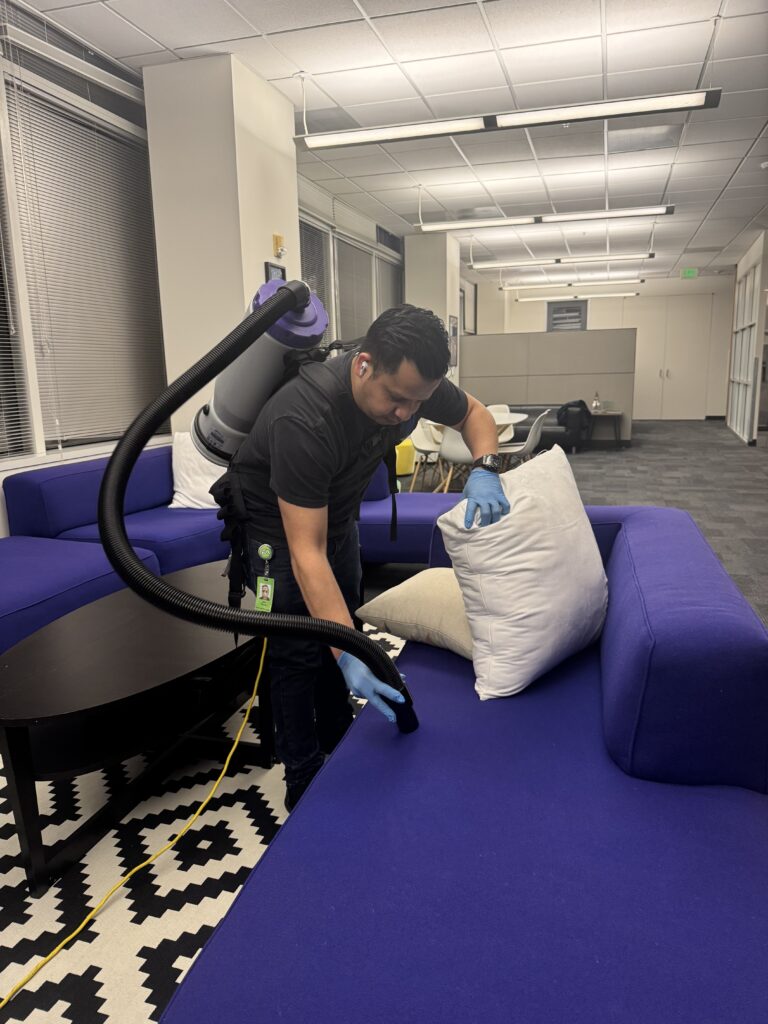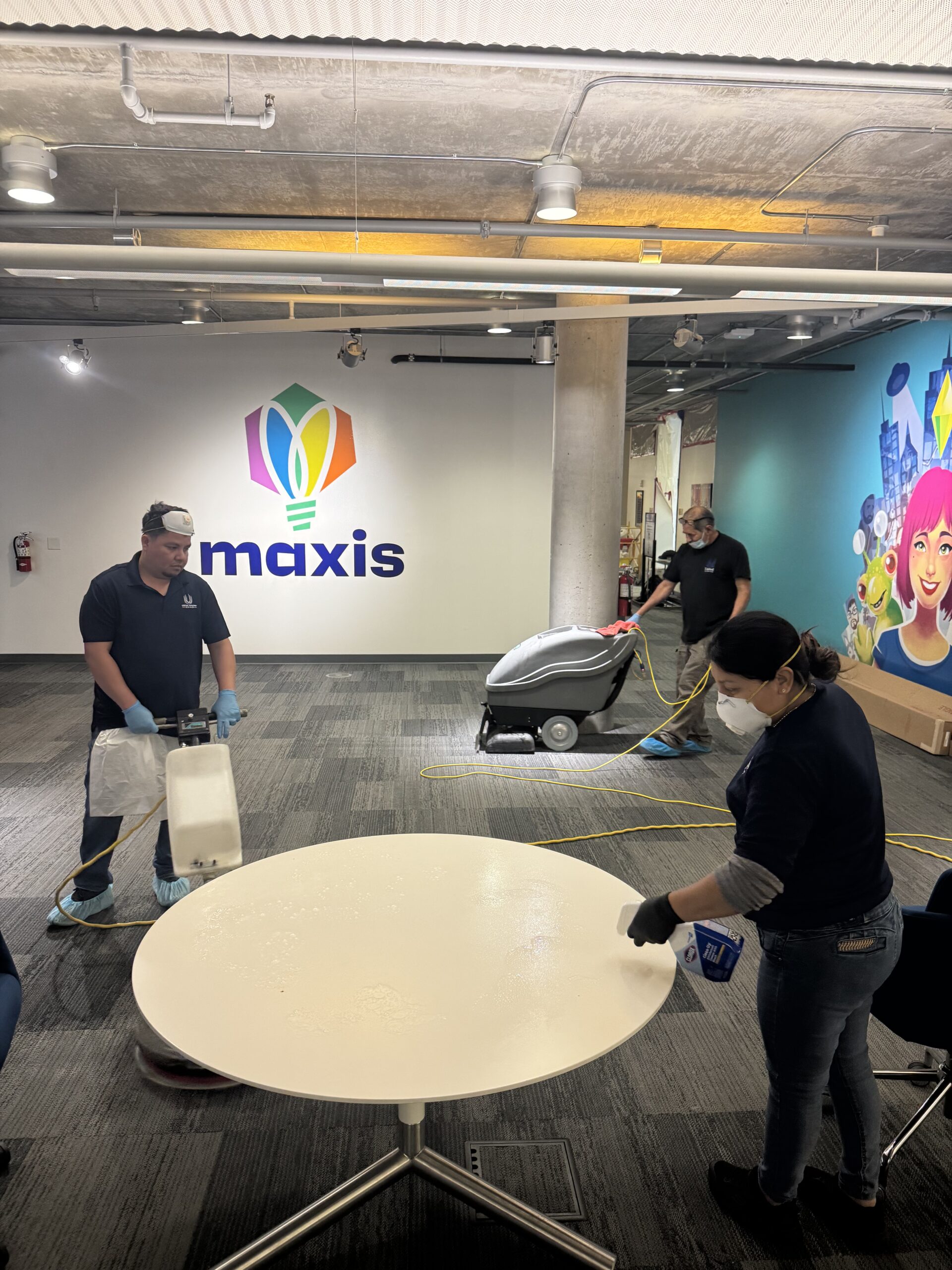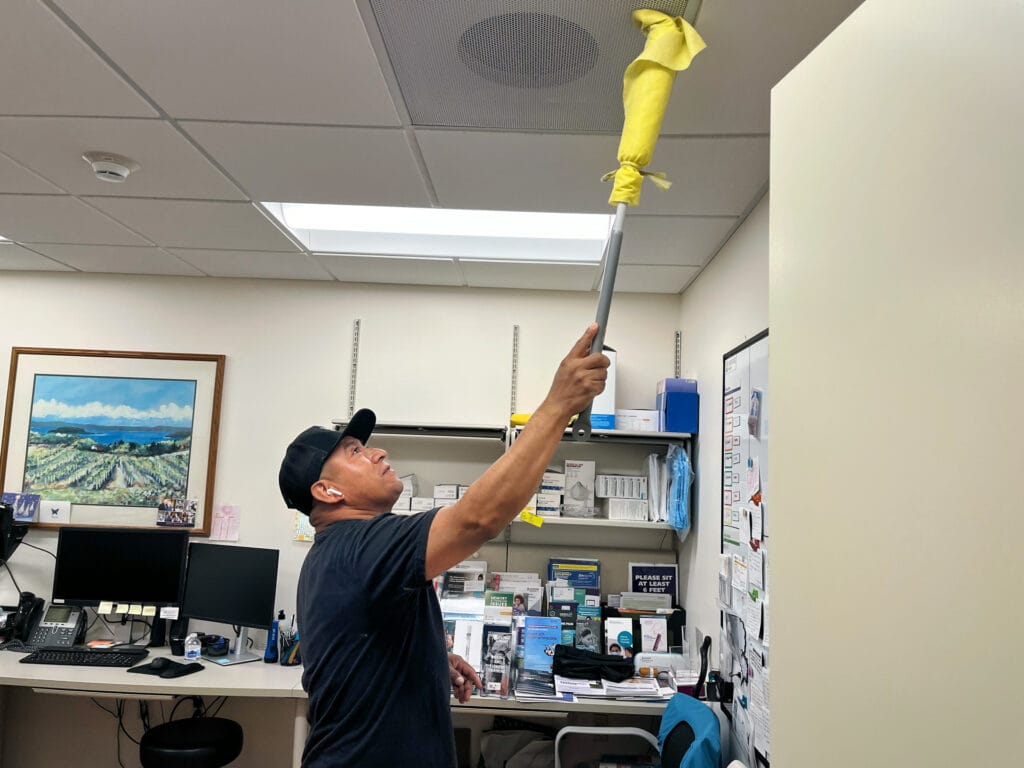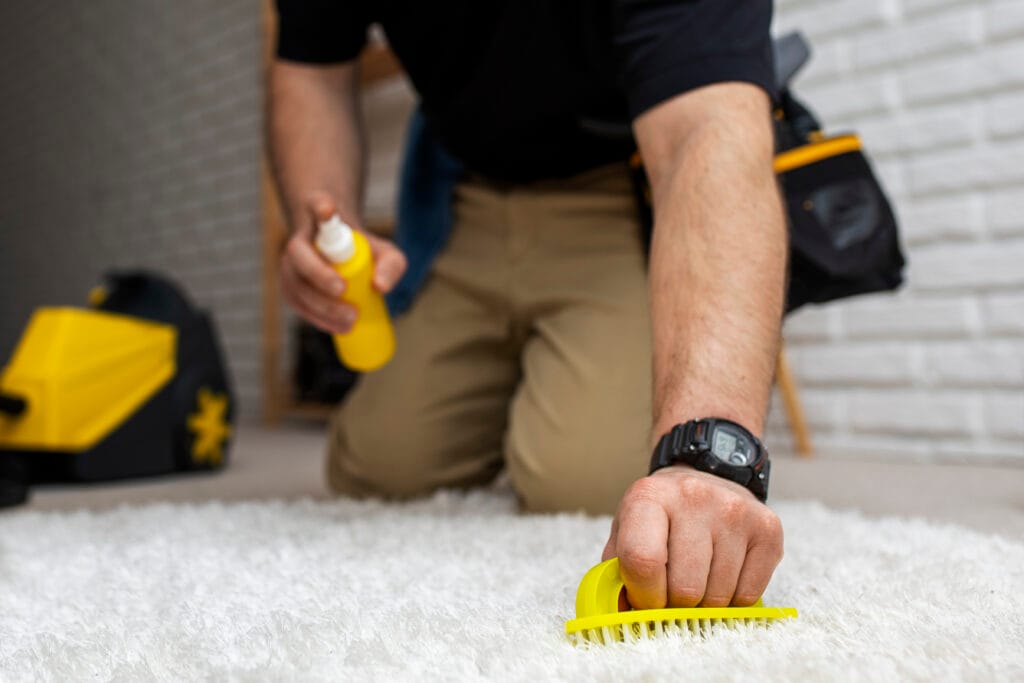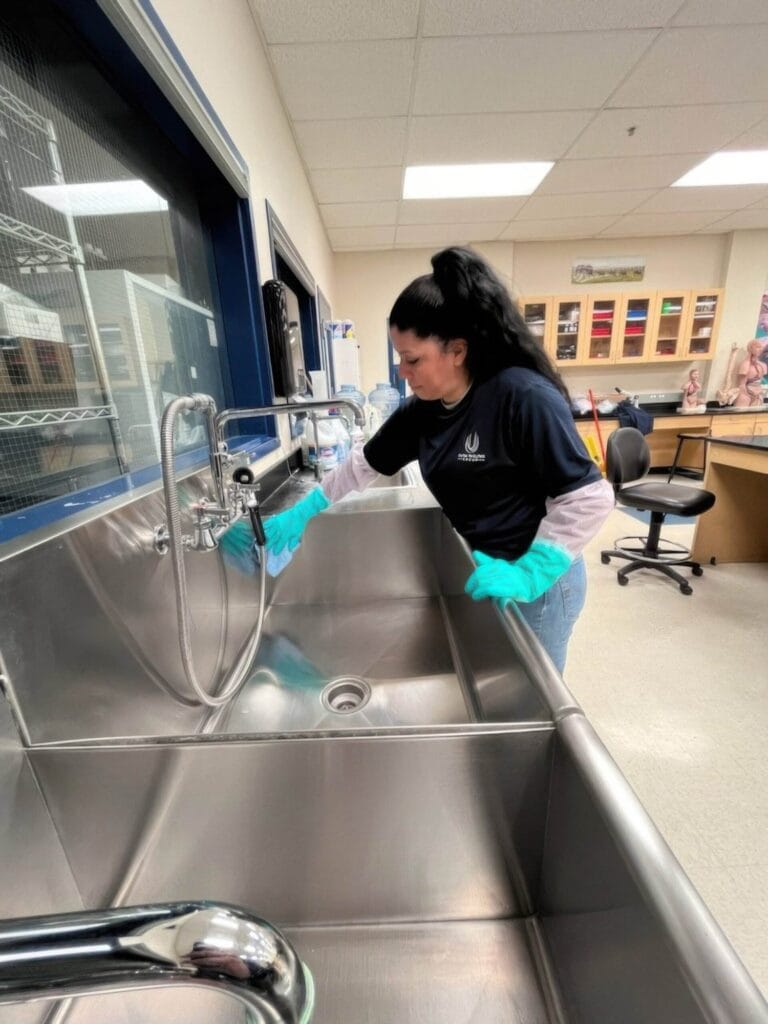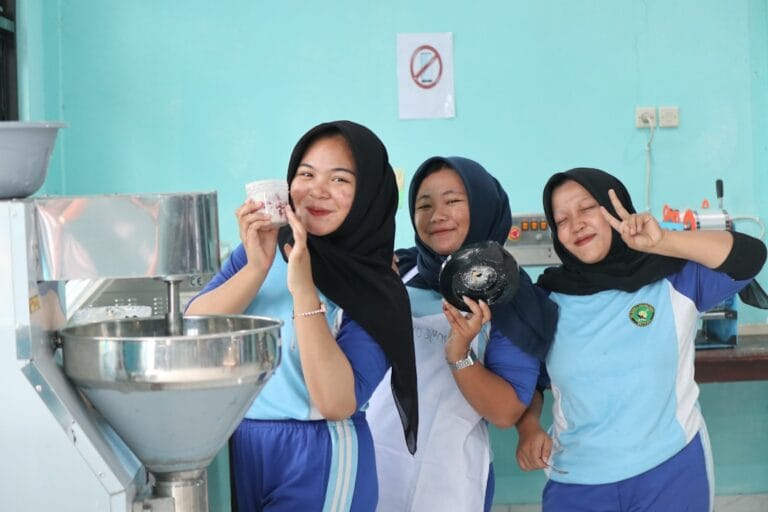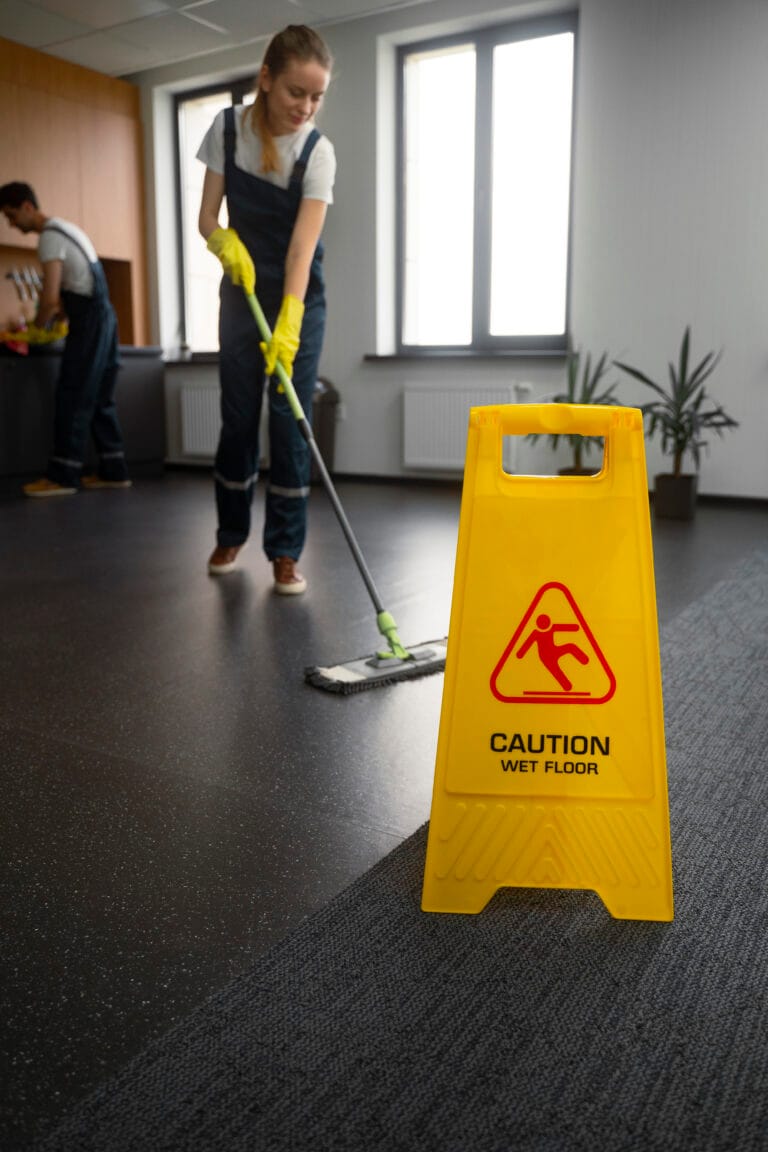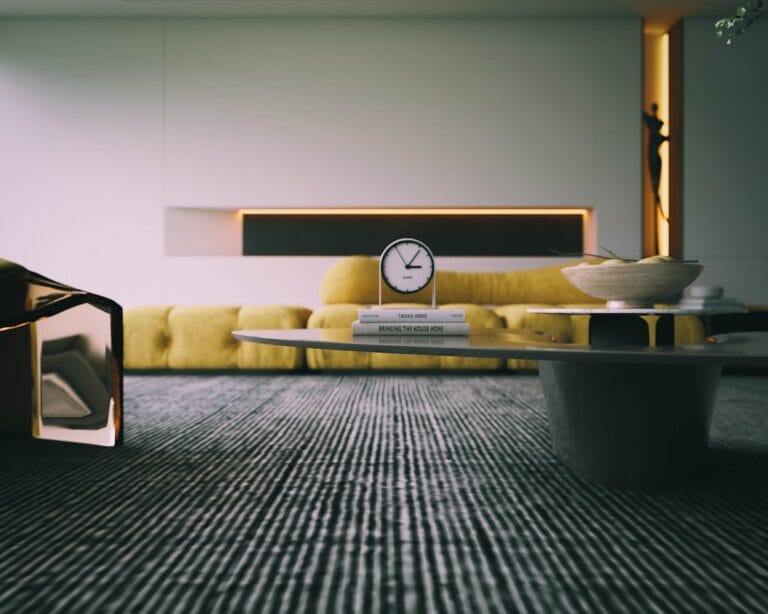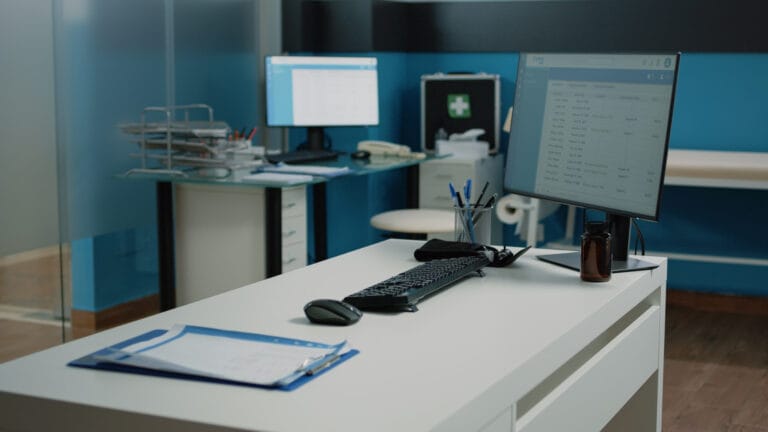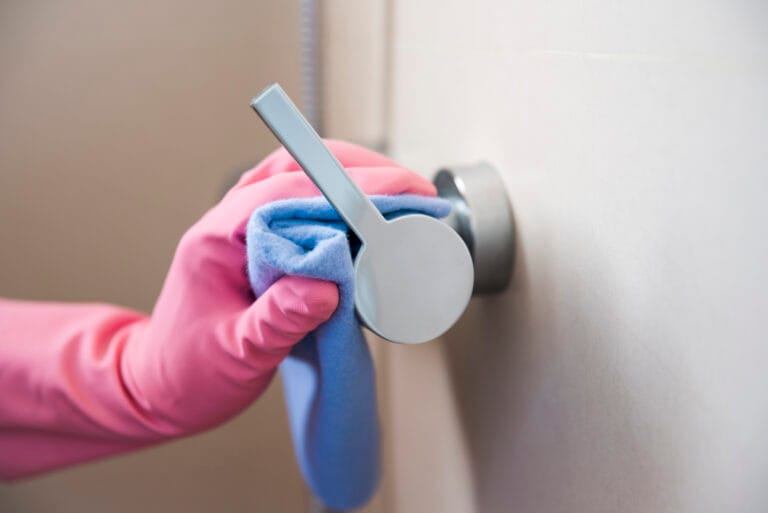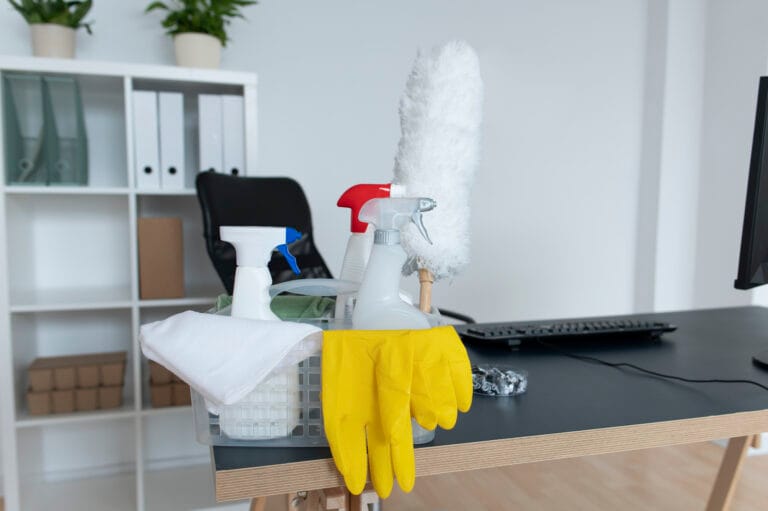Seasonal Deep Cleaning: Preparing Monterey Offices for Allergy Season
Allergy season in Monterey is a time when many residents experience heightened sensitivities to various allergens. The region’s unique climate, characterized by mild temperatures and coastal breezes, creates an environment conducive to the growth of pollen-producing plants and mold. As spring approaches, trees, grasses, and flowering plants release their pollen into the air, triggering allergic reactions in susceptible individuals.
Common symptoms include sneezing, itchy eyes, and respiratory issues, which can significantly impact productivity in office settings. In addition to pollen, other allergens such as dust mites and pet dander can exacerbate allergy symptoms. The proximity of Monterey County to natural landscapes means that outdoor allergens can easily infiltrate indoor spaces.
Understanding the specific allergens prevalent during this season is crucial for businesses aiming to create a comfortable work environment. By recognizing the challenges posed by allergy season, employers can take proactive measures to mitigate its effects on their workforce.
Key Takeaways
- Allergy season in Monterey can be particularly challenging due to the region’s unique climate and flora.
- Deep cleaning is crucial for preventing allergens from accumulating in office spaces and exacerbating allergy symptoms.
- A deep cleaning plan for Monterey offices should include targeted cleaning of high allergy areas such as carpets, upholstery, and air ducts.
- Choosing the right cleaning products for allergy season is essential, including non-toxic and hypoallergenic options.
- Regular maintenance and professional cleaning services are key components in combating allergens and maintaining a healthy office environment.
Importance of Deep Cleaning for Allergy Prevention
Eliminating Hidden Allergens
A deep cleaning regimen can help eliminate dust, mold, and other irritants that accumulate over time. For instance, carpets and upholstery can harbor dust mites and pet dander, while air ducts may circulate mold spores throughout the office.
Creating a Healthier Workspace
By investing in deep cleaning services, businesses in Monterey can create a healthier workspace that minimizes allergy-related issues. This proactive approach not only benefits employees’ health but also enhances overall morale and productivity.
Boosting Morale and Productivity
By reducing the presence of allergens, deep cleaning can lead to a significant improvement in employees’ overall well-being, resulting in increased morale and productivity.
Creating a Deep Cleaning Plan for Monterey Offices
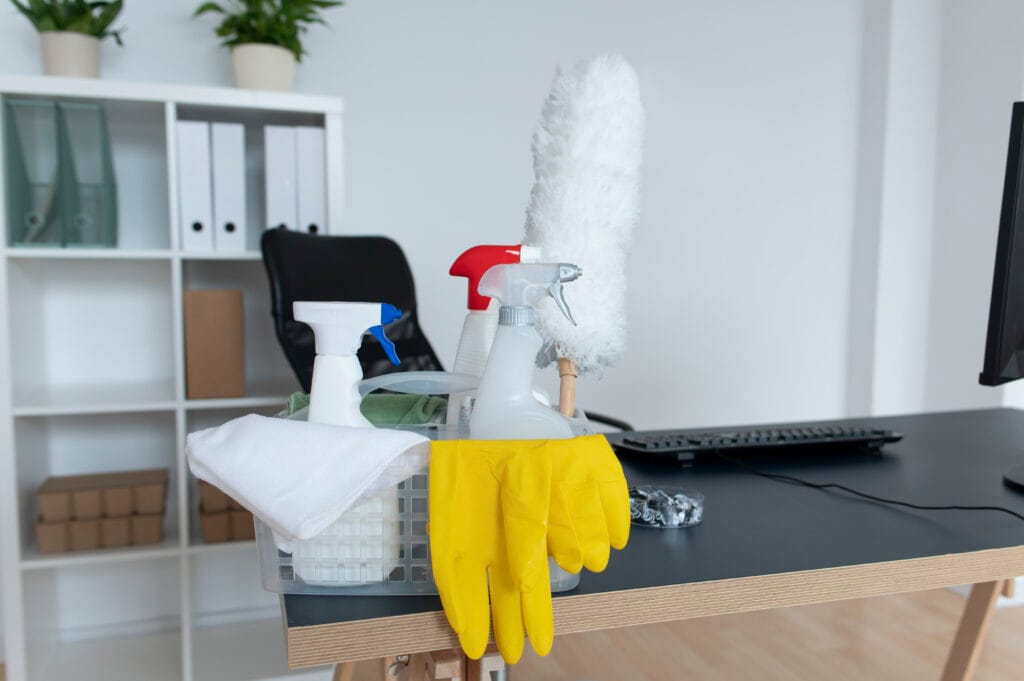
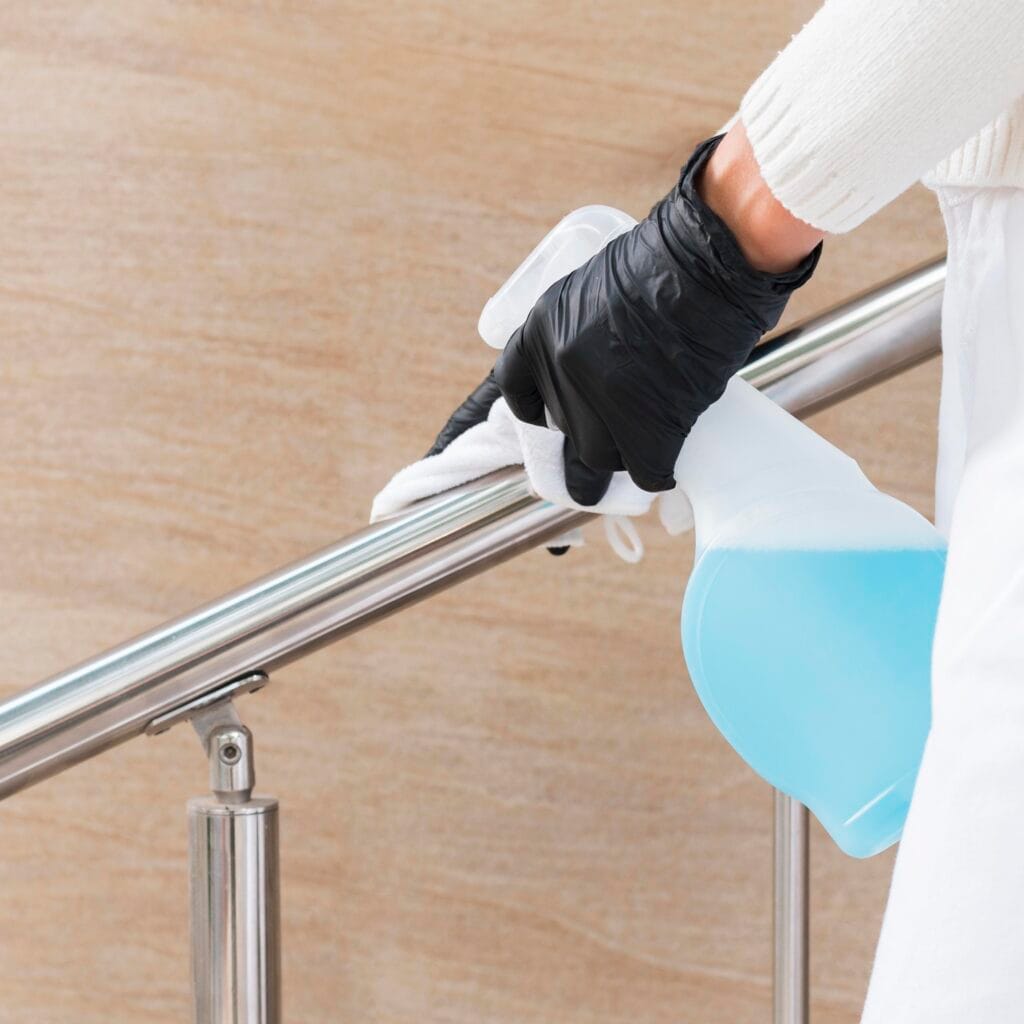
Developing a deep cleaning plan tailored to the specific needs of offices in Monterey is vital for effective allergy management. The first step in this process is to assess the unique characteristics of the workspace, including its size, layout, and the types of materials used in furnishings and decor. Understanding these factors will help determine which areas require more attention during the deep cleaning process.
Once the assessment is complete, businesses should establish a schedule for deep cleaning that aligns with allergy season peaks. For instance, planning deep cleaning sessions before the onset of spring can help reduce allergen levels before they become problematic. Additionally, it is essential to involve employees in the planning process by soliciting their input on areas they feel may need extra attention.
This collaborative approach not only fosters a sense of ownership among staff but also ensures that the cleaning plan addresses specific concerns related to allergies.
Targeting High Allergy Areas in the Office
Certain areas within an office are more prone to accumulating allergens than others, making them prime targets for deep cleaning efforts. High-traffic zones such as break rooms, conference rooms, and entryways often collect dust and debris due to frequent use. Additionally, areas with carpeting or upholstered furniture can harbor dust mites and other allergens that contribute to discomfort during allergy season.
In addition to common areas, individual workspaces should not be overlooked. Desks, chairs, and personal items can accumulate dust and allergens over time. Implementing a targeted cleaning strategy that focuses on these high-allergy areas will help ensure that employees are less exposed to irritants.
Regularly scheduled cleanings of these spaces can significantly reduce allergen levels and create a more pleasant working environment.
Choosing the Right Cleaning Products for Allergy Season
Selecting appropriate cleaning products is crucial for effective allergy management during peak seasons. Many conventional cleaning agents contain harsh chemicals that can exacerbate respiratory issues or trigger allergic reactions in sensitive individuals. Therefore, businesses should prioritize using hypoallergenic and environmentally friendly cleaning products that are specifically designed to minimize allergens.
When choosing cleaning products, it is essential to look for those labeled as “fragrance-free” or “non-toxic.” These products are less likely to contain irritants that can affect employees’ health. Additionally, opting for products with certifications from reputable organizations can provide assurance that they meet safety standards. By making informed choices about cleaning supplies, businesses in Monterey can create a healthier workplace while effectively combating allergens.
Implementing Regular Maintenance to Combat Allergens
Daily Tasks for a Healthier Environment
Establishing a routine cleaning schedule that includes daily tasks such as vacuuming carpets, dusting surfaces, and sanitizing common areas will help keep allergen levels in check throughout the year. This proactive approach ensures that allergens do not accumulate over time, reducing the likelihood of triggering allergic reactions among employees.
Monitoring Indoor Humidity Levels
Regular maintenance should also include monitoring indoor humidity levels, as high humidity can promote mold growth—a significant allergen during allergy season.
Creating a Healthier Environment
Utilizing dehumidifiers or ensuring proper ventilation can help maintain optimal humidity levels within the office. By incorporating these maintenance practices into daily operations, businesses can create a healthier environment that supports employee well-being.
Training Staff on Allergy Prevention and Deep Cleaning Techniques
Educating staff about allergy prevention and effective deep cleaning techniques is essential for fostering a culture of health within the workplace. Training sessions can provide employees with valuable information about common allergens and their effects on health, as well as practical tips for minimizing exposure. This knowledge empowers employees to take an active role in maintaining a clean and allergen-free environment.
In addition to general education on allergies, training should also cover specific deep cleaning techniques that staff can implement in their daily routines. For example, demonstrating proper dusting methods or effective vacuuming techniques can enhance overall cleanliness and reduce allergen levels. By equipping employees with the necessary skills and knowledge, businesses can create a more proactive approach to allergy management.
Utilizing Professional Cleaning Services for Deep Cleaning
Engaging professional cleaning services like United Facilities Group can significantly enhance deep cleaning efforts during allergy season. These specialized services bring expertise and resources that may not be available in-house, ensuring a thorough and effective cleaning process. Professional cleaners are trained to identify high-allergen areas and utilize advanced equipment designed to remove dust, mold, and other irritants effectively.
Moreover, professional services often have access to high-quality cleaning products that are specifically formulated for allergy prevention. By partnering with United Facilities Group, businesses in Monterey can benefit from tailored cleaning solutions that address their unique needs while ensuring compliance with health standards. This collaboration not only improves indoor air quality but also demonstrates a commitment to employee well-being.
Incorporating Air Purification Systems in the Office
Integrating air purification systems into office spaces is another effective strategy for combating allergens during allergy season. These systems work by filtering out airborne particles such as pollen, dust mites, and mold spores, significantly improving indoor air quality. Investing in high-efficiency particulate air (HEPA) filters can capture even the smallest allergens, providing a cleaner breathing environment for employees.
In addition to standalone air purifiers, businesses may consider upgrading their HVAC systems to include advanced filtration options. Regular maintenance of these systems is crucial to ensure optimal performance and prevent the circulation of allergens throughout the office. By prioritizing air quality through purification systems, companies can create a healthier workspace that supports employee productivity and comfort.
Communicating with Employees about Allergy Season Preparedness
Effective communication with employees regarding allergy season preparedness is essential for fostering a supportive work environment. Employers should proactively share information about potential allergens present during this time and outline the steps being taken to mitigate their impact on health. This transparency helps employees feel informed and reassured about their workplace conditions.
Additionally, encouraging open dialogue about allergies allows employees to voice their concerns or share personal experiences related to allergies. This feedback can be invaluable in refining cleaning strategies and ensuring that all staff members feel comfortable discussing their needs. By prioritizing communication around allergy season preparedness, businesses can cultivate a culture of awareness and support among their workforce.
Monitoring and Adjusting the Deep Cleaning Plan as Allergy Season Progresses
As allergy season progresses, it is crucial for businesses to monitor allergen levels within the office and adjust their deep cleaning plans accordingly. Regular assessments can help identify any emerging issues or areas that may require additional attention based on employee feedback or observed symptoms. This adaptive approach ensures that cleaning efforts remain effective throughout the season.
Employers should also stay informed about local pollen counts and environmental conditions that may influence allergen levels in Monterey County. By remaining vigilant and responsive to changing circumstances, businesses can implement timely adjustments to their cleaning strategies. This proactive stance not only enhances employee well-being but also demonstrates a commitment to creating a healthy work environment throughout allergy season.
FAQs
What is seasonal deep cleaning?
Seasonal deep cleaning refers to a thorough cleaning of a space, such as an office, to remove built-up dirt, dust, and allergens that can accumulate over time. This type of cleaning is typically done in preparation for a change in season, such as allergy season.
Why is seasonal deep cleaning important for offices?
Seasonal deep cleaning is important for offices to create a clean and healthy work environment for employees. It helps to remove allergens, dust, and other pollutants that can affect indoor air quality and contribute to allergies and respiratory issues.
What are some common tasks included in seasonal deep cleaning for offices?
Common tasks included in seasonal deep cleaning for offices may include dusting and wiping down surfaces, vacuuming and steam cleaning carpets, cleaning air vents and filters, sanitizing high-touch areas, and decluttering and organizing workspaces.
How does seasonal deep cleaning help prepare offices for allergy season?
Seasonal deep cleaning helps prepare offices for allergy season by removing allergens such as dust, pollen, and pet dander that can accumulate in the indoor environment. This can help reduce allergy symptoms and improve indoor air quality for employees.
How often should seasonal deep cleaning be done in offices?
Seasonal deep cleaning for offices is typically done at least twice a year, before the start of allergy season and again in the fall. However, the frequency may vary depending on the specific needs of the office and the local climate and environmental conditions.
